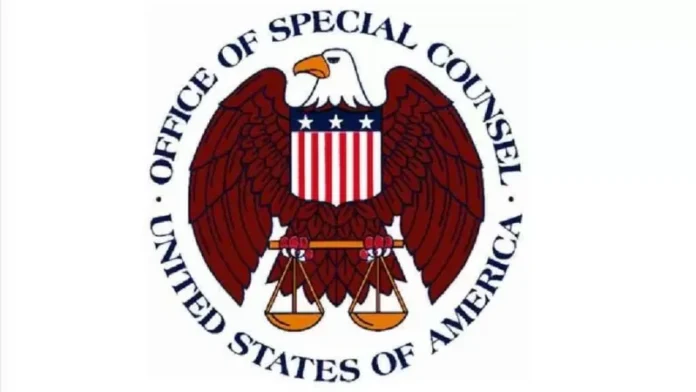The recent decision by the U.S. Court of Appeals for the District of Columbia to remove Hampton Dellinger as head of the Office of Special Counsel has once again brought to light the ongoing legal battle over President Donald Trump’s authority to fire the special counsel.
This latest twist in the case has raised concerns about the protection of whistleblowers and the integrity of the federal workforce. Dellinger, who was fired last month by the Trump administration, sued the President, arguing that his dismissal was unlawful as the law states that special counsels can only be removed for specific reasons such as inefficiency, neglect of duty, or malfeasance in office.
U.S. District Judge Amy Berman Jackson had previously ruled in favor of Dellinger, reinstating him in his position while he pursued his case. However, the appeals court has now lifted this order, allowing the Trump administration to remove Dellinger immediately while the legal arguments are being considered.
This decision has sparked outrage among Dellinger’s supporters, who believe that it sets a dangerous precedent and could have a chilling effect on the important duties of the Office of Special Counsel. Dellinger’s lawyers argue that allowing the President to fire the special counsel without cause would undermine the office’s role in protecting whistleblowers and investigating claims of government wrongdoing.
On the other hand, the Trump administration maintains that the law protecting the special counsel from removal is unconstitutional and unfairly restricts the President’s power to appoint his preferred agency head. This has led to a clash between the executive and judicial branches of government, with the fate of the Office of Special Counsel hanging in the balance.
The Office of Special Counsel plays a crucial role in safeguarding the federal workforce from illegal personnel actions, such as retaliation for whistleblowing. It serves as a channel for employees to disclose government wrongdoing and can pursue disciplinary action against those who punish whistleblowers.
In a separate challenge, Dellinger is also fighting for the reinstatement of probationary workers who were fired as part of the Trump administration’s efforts to overhaul the federal government. In a recent ruling, a government panel that enforces workers’ rights ordered the reinstatement of over 5,000 employees who were terminated by the U.S. Department of Agriculture.
While this decision only applies to USDA workers, Dellinger has called on all federal agencies to voluntarily rescind any unlawful terminations of probationary employees. This highlights the urgency of the situation and the need for swift action to protect the rights of federal workers and ensure the proper functioning of the government.
In light of this latest development, it is crucial for the Trump administration to reconsider its stance on the removal of the special counsel and respect the law that is in place to safeguard the federal workforce. The Office of Special Counsel must be allowed to carry out its duties without fear or interference, in order to maintain the integrity and transparency of the federal government.
In conclusion, the decision to remove Hampton Dellinger as head of the Office of Special Counsel has raised important questions about the protection of whistleblowers and the independence of the federal workforce. It is now up to the Supreme Court to consider the legal arguments and make a final decision on this matter. In the meantime, it is crucial for all federal agencies to abide by the law and protect the rights of their employees. Only then can we ensure a fair and just government that serves the best interests of the American people.

